Home \ Low Carbon School Pilot Project \ 6R Guidance to Sustainable Life
Half the summer vacation has passed, but it's never too late to start a sustainable life.
Come and have a look, then you can get a guide to sustainable life!
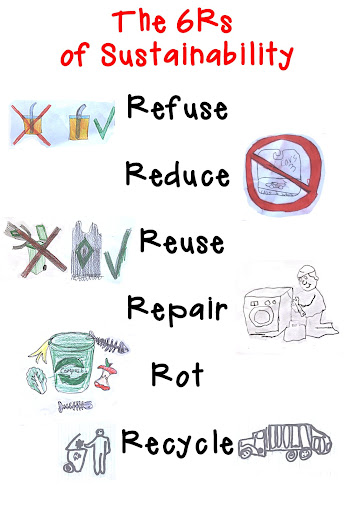
6R sustainability principles: Refuse, Reduce, Reuse, Repair, Rot, Recycle.
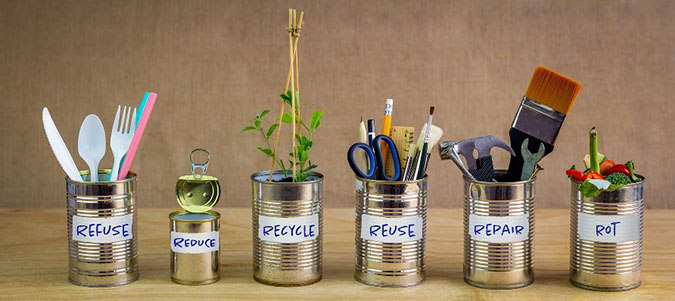
1. Refuse
Try to refuse anything we do not need. Rejection is simple to say but not so easy to do. It requires not only firm willpower, but also bold to say "no" to unnecessary things.
TIPS:
Gifts: when shopping in supermarkets, or other public places, merchants always offer various gifts to promote their products. Remember to say no to free gifts you don't need.
Spam: we can set "unsubscribe" for many e-mails, and stopping receiving promotional information is also a good way to refuse temptation.
Bring your own lunch / cup: try to start with bringing your own lunch and cup to refuse disposable packaged goods.

2. Reduce
Reduce demand and have a simplified life. We can sort out our current possessions, sell what we don't need on the "second-hand platform" or share with our friends.
We should reduce not only what we already have, but also what we need in the future. In other words, we can choose to borrow or rent infrequently used items to avoid waste caused by non-use after purchase.
It will reduce waste and save us some expenses.
Tips:
Clothing: try to start from a small area, sort out unwanted clothes, and donate or sell them.
Daily necessities: we can make a simple sorting of daily necessities and share infrequently used items with those in need, so that our home will become more concise and comfortable.
Electrical products: the home is full of unused electrical appliances. We always think we will use them one day, but actually it's not true. It's better to recycle these things and let them really be used.
3. Reuse
With the prevalence of disposable lifestyle, we are used to the convenience brought by disposable products. We need to constantly think about how to reuse idle items and how to replace disposable items.
TIPS:
Clothing: if the damaged clothes cannot be donated or resold, we can try to make simple modifications to extend the service life of them. For example, after cutting, the damaged clothes can be used as daily necessities such as handkerchiefs and rags.
Kitchen: glass jars for daily food can be cleaned and used as storage tanks for other items after eating up the food.
Plastic bottle: stereotypically, most plastics products are disposable, but this is not the case. For some daily necessities, we can choose plain packs when buying back, so as to reduce the waste of plastic bottles.
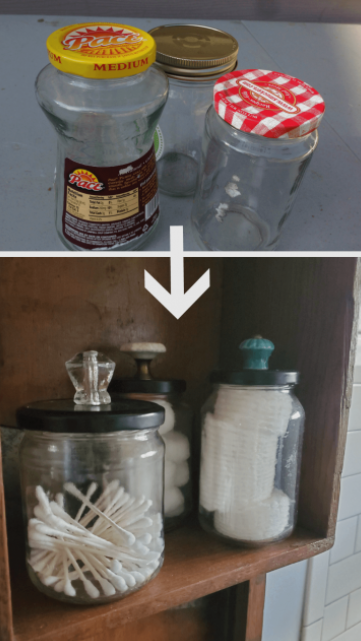
4. Repair
Every item represents our memories, if possible we can repair it at first when conditions permit, so that it can continue to accompany us.
Simple repair is also the joy of life. We can extend the service life of products by repairing and maintaining, which are the traces of our life.
TIPS:
Resources: if you encounter the problem of repairing, you can ask for help online. Usually, you can learn it by watching online tutorial videos. Complex repair requires professional help.
Brand: when buying goods, we can pay attention to the maintenance service of the brand.
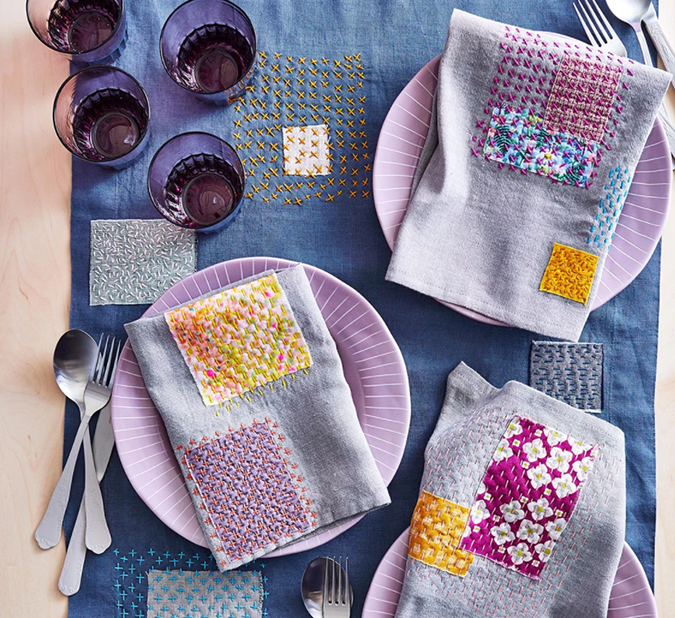
5. Rot
Don't throw food residue into the dustbin in a hurry, instead, you can compost them. Composting is a good way to reduce kitchen waste!
It can reduce the use of chemical fertilizer and provide fertile black soil for plants.
Composting is not as complex as we think. Just choose a suitable and convenient composting method and take action.
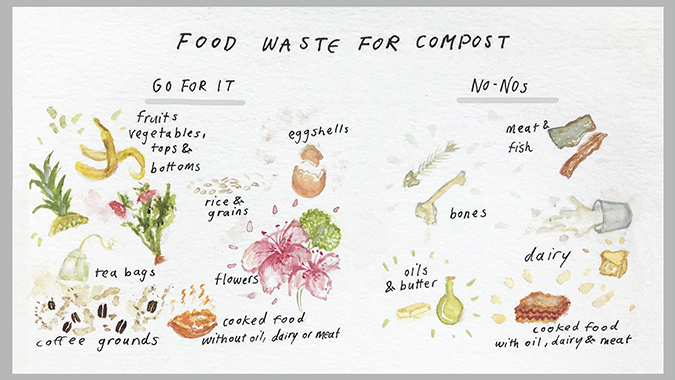
6. Recycle
When we cannot refuse, reduce, reuse or repair something, it is the time for recycling. Only some items can be recycled, and most of them will still be sent to the landfill.
The recycling and producing process will also consume some energy, so we should reduce the recycling and reproduction of goods as much as possible. Hence, we should try our best to reduce items.
6R seems difficult to put into action.
But we might choose one of your most confident "R" from now on to challenge sustainable life and enjoy the infinite fun they bring!
Source:
Article source: http://thegreengnome.co.uk/the-7-rs-of-zero-waste-you-need-to-know/
The pictures in this article are from the Internet.
Project introduction:
Yunnan Low-carbon Schools Pilot Project is funded by the European Union and implemented by the People to People Foundation (Spanish member of HPP) in cooperation with FAIHPP (Switzerland) Yunnan Representative Office, Yunnan Academy for Science and Technical Information, Southwest Forestry University, Chinese Youth Climate Action Network, Green Kunming (Kunming Environmental Popular Science Association) and Kunming Good Deed Public Welfare Community Development Service Center with a project cycle from January 1, 2020 to December 31, 2023. The project begins by increasing partners’ awareness and advocacy on climate change mitigation and environmental protection, by raising climate change awareness among 600 schools, 70,000 students and teachers, determine the emission benchmark through basic calculation, and then implement emission reduction work in 50 Carbon Compliant Pioneer Schools. Use science, technology, innovation and other means to respond to “climate action” to accelerate environmental sustainability and promote the transition from green campuses to low-carbon and carbon-neutral campuses.

The project is funded by European Union.

Any views or opinions presented are solely those of the author, and do not necessarily represent those of the donor.